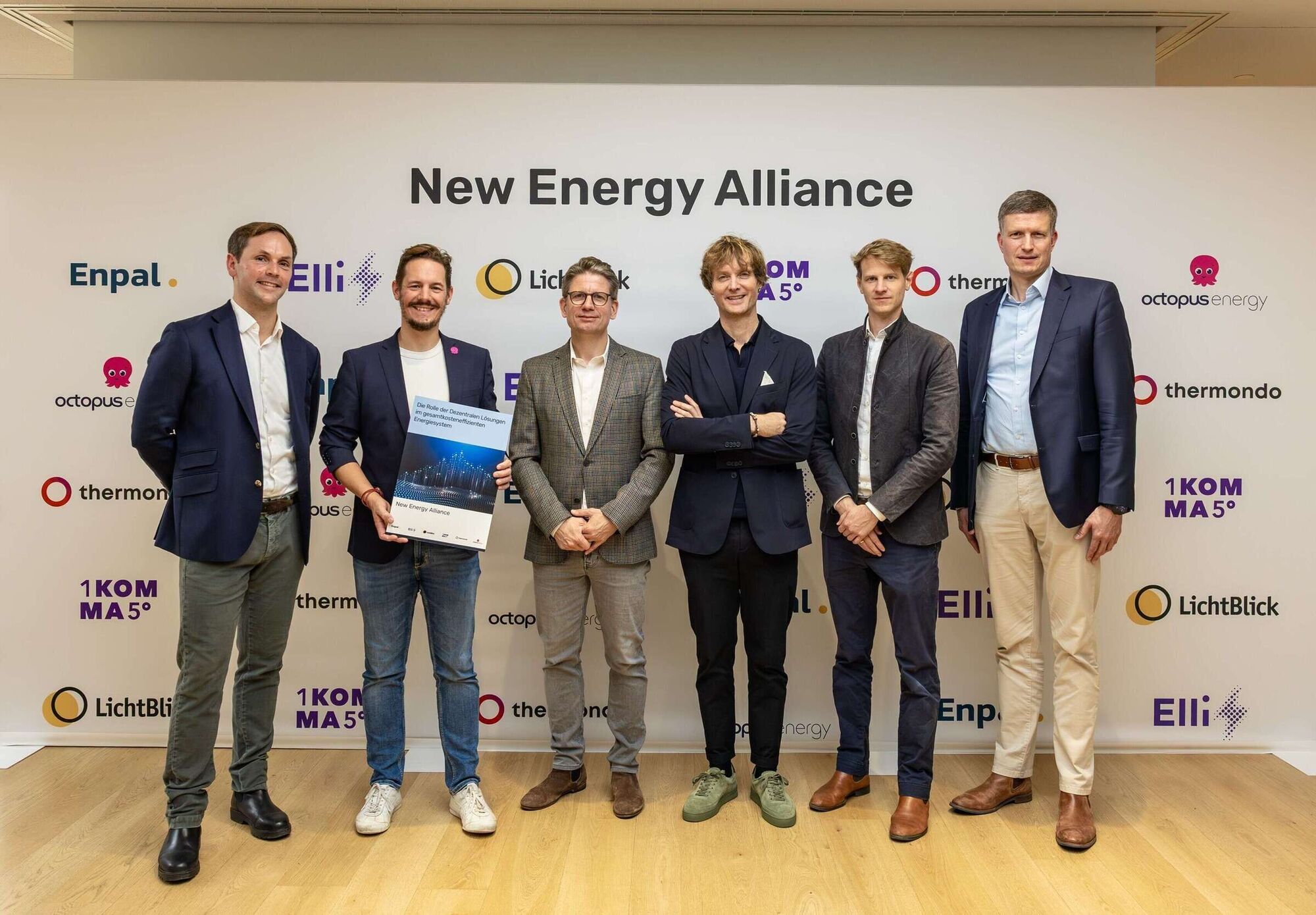Photo Credit: www.volkswagen-group.com
Germany could save up to €255 billion by 2045 through widespread adoption of decentralized energy systems powered by electric vehicles, home batteries, solar rooftops, and heat pumps, according to a new study by consulting firm Roland Berger and Volkswagen Group’s energy brand Elli.
The report, presented by a coalition of more than 20 companies under the New Energy Alliance, highlights the potential of bidirectional EV charging and distributed energy flexibility as key drivers of Europe’s energy transition.
Decentralization: The Next Phase of Germany’s Energy Transition
The study finds that Germany’s transition to climate neutrality cannot depend solely on centralized power generation. Instead, it calls for a hybrid system combining large renewable power plants with millions of flexible, distributed assets capable of producing, storing, and redistributing electricity locally.
Roland Berger estimates that decentralized solutions could lower overall energy system costs by €13 billion per year, adding up to €255 billion in savings by 2045. The approach could also create around 100,000 new jobs across Germany’s clean-energy industries.
For households and small enterprises, this model could mean up to 50 percent reductions in annual power bills, translating to average savings of about €1,200 per home.
EV Batteries as Mobile Energy Assets
Giovanni Palazzo, CEO of Volkswagen Elli, said electric mobility is evolving beyond a transport solution into a distributed power resource: “Electric vehicles will no longer be seen only as clean mobility options — they will act as mobile batteries that stabilize the grid and empower consumers to take part in the energy transition.”
By enabling EVs to feed energy back into the grid during peak demand, Germany could reduce its reliance on fossil-based backup capacity while enhancing system flexibility and renewable integration.
Policy Reforms to Unlock the Potential
The report urges policymakers to introduce measures that place decentralized energy on equal footing with large-scale plants. Recommended actions include:
- Dynamic grid tariffs and incentives for local energy storage
- Digitalized grid and smart-meter rollout to support real-time management
- Clear legal frameworks for bidirectional charging and grid feedback
- Market mechanisms that reward flexible demand and distributed generation
Without swift regulatory reform, the study warns, Germany risks higher energy costs and slower progress toward its net-zero targets.
Read the full report here.
India Connection: Shared Lessons for Decentralized Power
India — the world’s third-largest renewable energy market — could draw valuable lessons from Germany’s decentralized energy strategy. With electric vehicle sales projected to reach around 10 million units annually by 2030 (NITI Aayog), India’s rapidly expanding EV ecosystem could evolve into a nationwide distributed power resource if supported by early adoption of bidirectional charging and localized storage systems.
Germany’s initiatives with companies like Elli, Enpal, and LichtBlick parallel India’s efforts under the National Green Hydrogen Mission, FAME III electric mobility scheme, and the Rooftop Solar Phase II program run by the Ministry of New and Renewable Energy. Together, these initiatives aim to reduce grid congestion and strengthen energy access across rural and urban regions alike.
Analysts believe both nations are advancing toward a shared goal — building resilient, low-carbon power systems in which consumers also become producers. The German model highlights how India can unlock significant economic, environmental, and energy-security benefits by accelerating EV-to-grid and decentralized energy-management frameworks over the next decade.



